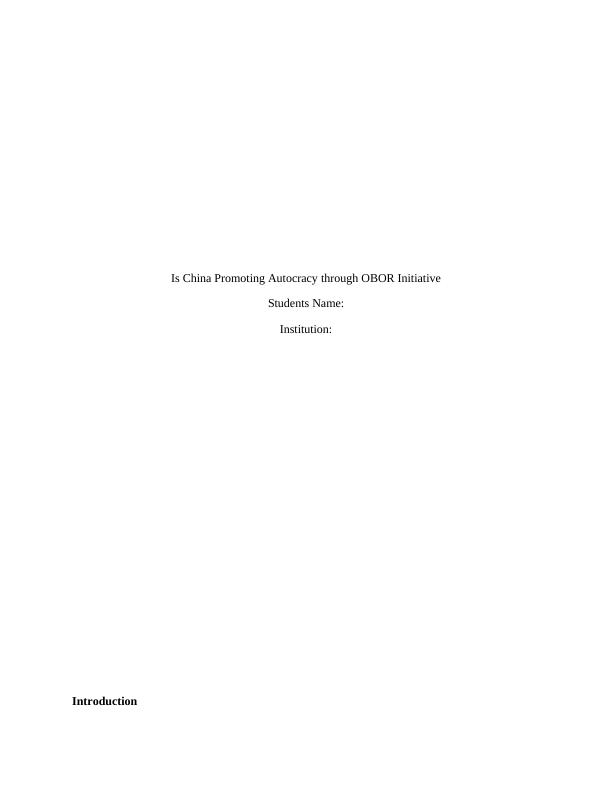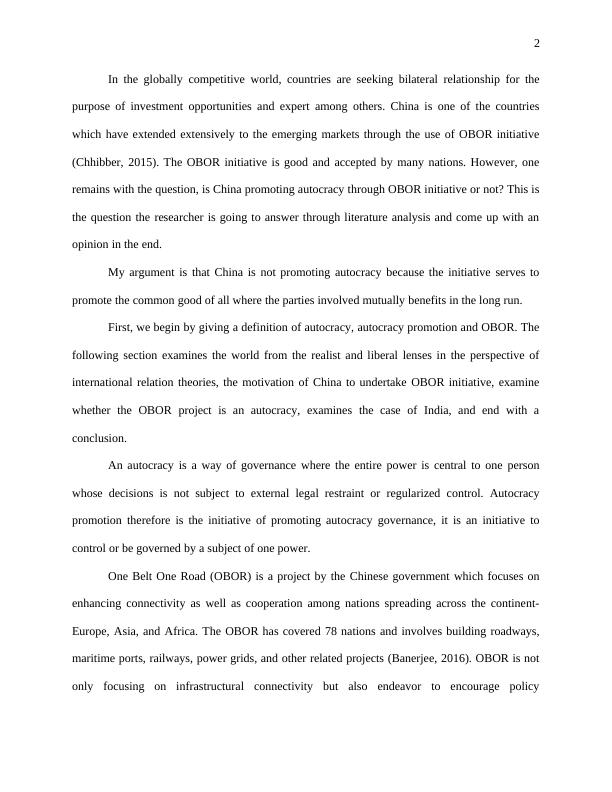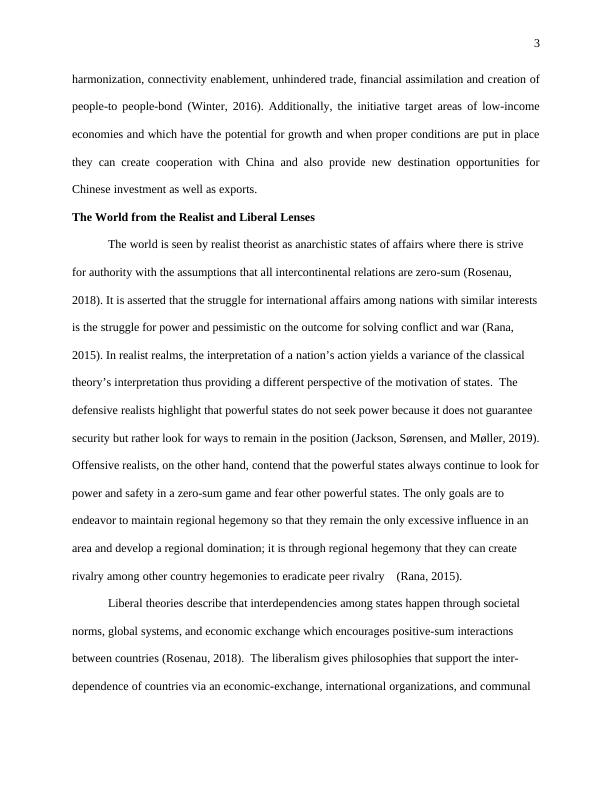Is China Promoting Autocracy through OBOR Initiative
Today’s class discusses the history of the Syrian conflict, war crimes, chemical weapons, competing peace processes, and the humanitarian and security aspects of the refugee crisis. It also briefly touches on the Asian Infrastructure Investment Bank and China's influence along the Silk Road.
10 Pages3083 Words37 Views
Added on 2023-01-03
About This Document
This article examines the question of whether China is promoting autocracy through the OBOR initiative. It analyzes the motivations behind the initiative, explores the perspectives of realist and liberal theories in international relations, and discusses the benefits and implications of the OBOR project. The article concludes that there is no solid evidence to support the allegation of China promoting autocracy and argues that the initiative serves to promote the common good and integration among nations.
Is China Promoting Autocracy through OBOR Initiative
Today’s class discusses the history of the Syrian conflict, war crimes, chemical weapons, competing peace processes, and the humanitarian and security aspects of the refugee crisis. It also briefly touches on the Asian Infrastructure Investment Bank and China's influence along the Silk Road.
Added on 2023-01-03
ShareRelated Documents
End of preview
Want to access all the pages? Upload your documents or become a member.
Objectives of Asian infrastructure investment bank in the one belt one road Project
|13
|3282
|2
Evolution of International Relations - Essay
|8
|2401
|461
New Silk Road: Implications for Global Business Strategy
|9
|3221
|222
China Policy and India Connection: Implications of Belt and Road Initiative and Border Shenanigans
|5
|1092
|199



